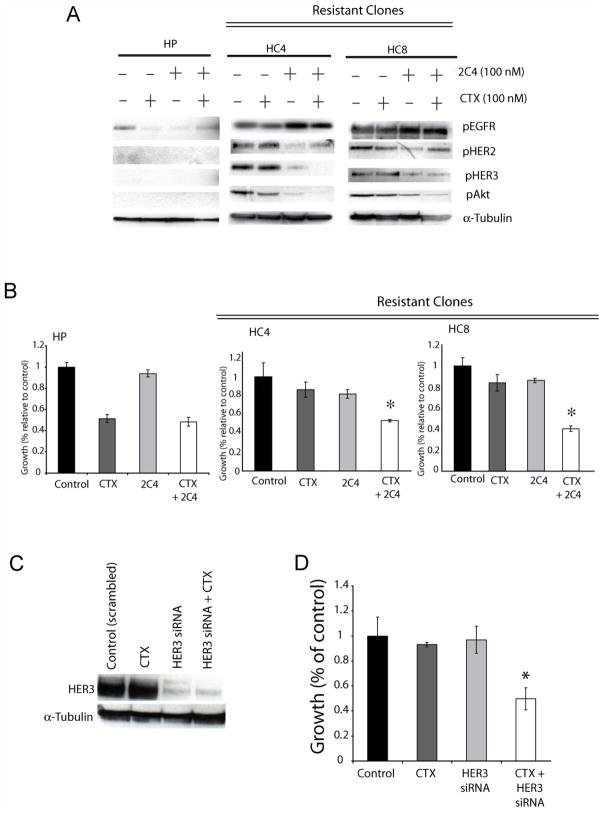Figure 7. Inhibition of HER2 or HER3 activity sensitizes cetuximab-resistant cells.
A: Combinatorial treatment of cetuximab-resistant clones HC4 and HC8 with cetuximab and 2C4 leads to loss of HER3 and AKT activity. Parental cells (HP) and cetuximab-resistant clones HC4 and HC8 were treated with cetuximab (CTX), 2C4 (2C4) or the combination. Protein lysates were fractionated on SDS-PAGE followed by Western blotting for the indicated proteins. α-Tubulin was used as a loading control.
B: Combinatorial treatment of cetuximab-resistant clones with cetuximab and 2C4 leads to growth inhibition. Parental cells (HP) and cetuximab-resistant clones (HC4, HC8) were plated and allowed to adhere overnight. Growth was measured at 72 hours after drug treatment using the growth proliferation assay as described in the experimental procedures and plotted as a percentage of growth relative to the untreated control cells. Treatment groups were cetuximab (100nM), 2C4 (100nM) or the combination. Data points are represented as mean ±SEM (n=6). *, P<0.05
C: Western blotting of cetuximab-resistant clone (HC4) cells after transient transfection with HER3 siRNA. Treatments are: Scrambled siRNA (50nM), Cetuximab (100nM), HER3 siRNA (50nM) or the combination. 48 hours after treatment protein was collected and fractionated by SDS-PAGE and immunoblotted for the indicated proteins.
D: HER3 knockdown re-sensitizes cetuximab-resistant cells to cetuximab. Cells were transfected with scrambled (50nM, control), 100nM cetuximab, HER3 (50nM) siRNA in combination with 100nM cetuximab. The cells were collected 48 hours later for Western blot analysis of the indicated proteins. Growth was measured at 72 hours after treatment using the growth proliferation assay as described in the experimental procedures and plotted as a percentage of growth relative to the untreated control cells. Data points are represented as mean ±SEM (n=6). *, P<0.05

